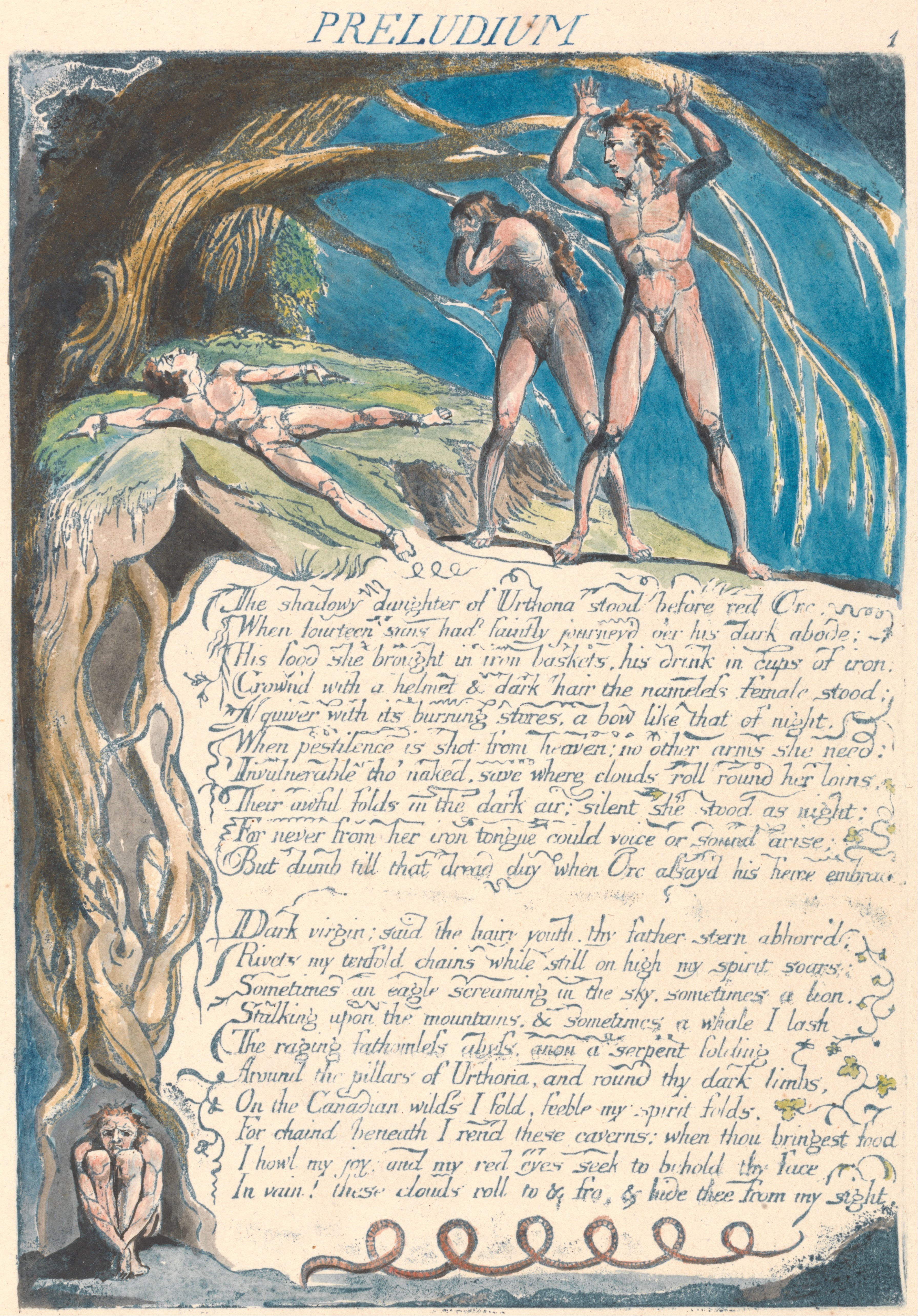 |
America Plate 3 |
Blake, of course, used the names of his Four Zoas to portray the
interactions of the functions, and he was describing events which
took place in Eden, Beulah, Generation and Ulro to narrate
scenarios. As an intuitive introvert Blake experienced visionary
images within his mind which he transferred to the words and
pictures of his Illuminated Books. Witcutt's book encourages us to
focus on the interactions which we see and read about in Blake
works as taking place in our own minds and happening in the world
which is more familiar to us.
Witcutt Page 69
After the disintegration of the Self there follows conflict among
the Zoas. The functions, displaced from their true positions, are
now in conflict with each other.
"They saw their Wheels rising up
poisonous against Albion
Urizen, cold & scientific: Luvah,
pitying & weeping
Tharmas, indolent & sullen:
Urthona, doubting & despairing
Victims to one another &
dreadfully plotting against each other" (Jerusalem 43)
Witcutt Page 70-71
The Conflict between Intuition and Thought
The eighteenth century, the age into which Blake was born, called itself the Age of Reason. It was an unpropitious time for an intutive....
(Blake) repressed passion as well as thought, Luvah as well as Urizen. And he did this by means of a third function, imagination of intuition. Those who possess dominant intution are comparatively rare; so it is not everyone who can do this!
Witcutt Page 73
The Conflict between Thought and Feeling
See Reading Witcutt 4
https://woeandjoy.blogspot.com/2020/12/reading-witcutt-4.html
Witcutt Page 82
The Conflict between Intuition and Feeling
This conflict is played out in the fractured relationship between Los representing Intuition and his son Orc representing Feeling.
Witcutt Page 86
The Conflict between Intuition and Sensation
Tharmas is the most repressed and unconscious of the Zoas, and his actions are correspondingly hard to understand.
Witcutt Page 89
The Conflict between Thought and Sensation
So in the right state of affairs, Urizen supplies Tharmas with light, and Tharmas Urizen with food. This is perfectly correct symbolism. Thought enlightens sensation, and sensation provides thought with the matter to brood upon.
Witcutt Page 90
The Conflict between Feeling and Sensation
These are the two most repressed functions, and their conflict takes place in the lowest depths of the unconscious. Los (the Ego) is quite unaware of it.
No comments:
Post a Comment